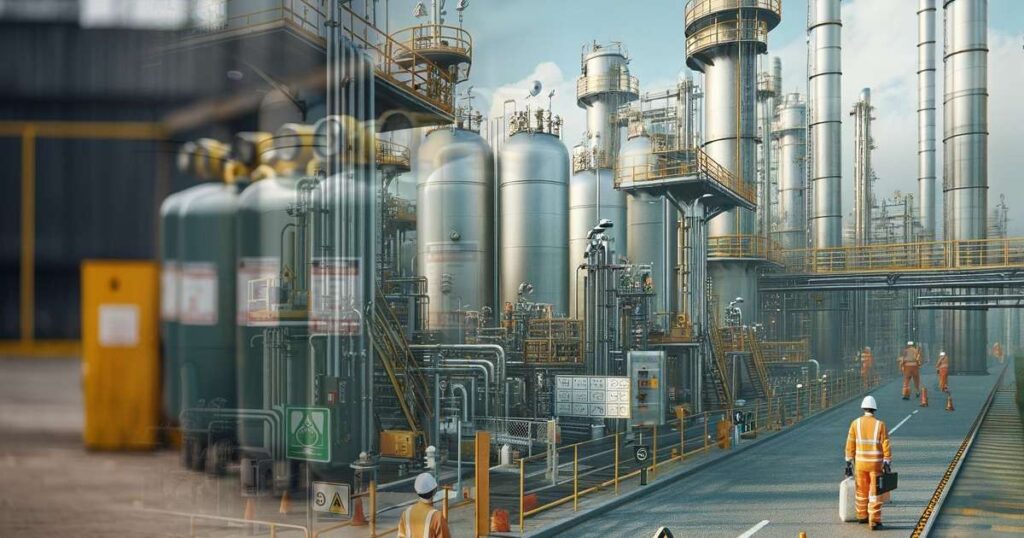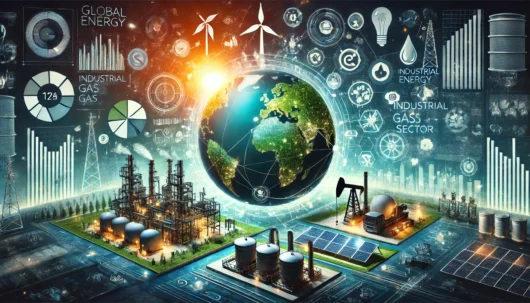The industrial gas sector operates under stringent regulations to ensure safety, environmental protection, and compliance with legal standards. As you navigate the industry, be aware of the regulations drafted by entities such as the U.S. Additionally Environmental Protection Agency, which are designed to control emissions and mitigate climate change. These regulations encompass the New Source Performance Standards (NSPS) that apply to new, modified, and reconstructed sources within the industry, targeting the reduction of greenhouse gases such as carbon dioxide, methane, and volatile organic compounds.
In 2018, analysts conducted a regulatory impact analysis to assess the industry’s energy use and its contributions to global warming potential. Furthermore, your adherence to these regulations is critical in controlling emissions and combating climate change. The EPA frequently updates these federal regulations, considering public comments and proposed amendments to devise guidelines that reflect the best practices for both existing sources and future establishments within the industrial gas industry. Such amendments typically result in a final rule that you must follow to maintain compliance and uphold safety standards.
Moreover, your familiarity with these federal regulations is imperative for ensuring the secure handling, transportation, and usage of industrial gases. These measures are crucial for safeguarding not just environmental but also workplace safety, thereby protecting you, your colleagues, and the surrounding community. Also, by staying informed and compliant, you contribute to an industry that operates with a commitment toward environmental stewardship and public health.
Regulatory Framework and Compliance

The safety and environmental impact of the industrial gas industry is managed through stringent regulatory frameworks. Your understanding of these regulations ensures compliance and operational excellence.
Legal and Regulatory Foundations
The United States regulates the industrial gas sector primarily through federal regulations laid out by the U.S. Environmental Protection Agency (EPA). Hence, these regulations encompass a broad range of requirements, from emission controls to the maintenance of safety standards. ISO standards also play a crucial role in manufacturing benchmarks for safety and performance.
Compliance and Enforcement Procedures
Compliance with regulatory requirements is non-negotiable; it’s an ongoing process. To facilitate this, the EPA outlines specific enforcement procedures. These include regular inspections and sanctions for non-compliance. Your operation may need to demonstrate adherence to limits on emissions of carbon monoxide, sulfur dioxide, and other hazardous air pollutants.
Guidance and Amendments
Regulations are dynamic and can be subject to reconsideration and proposed amendments. Your business must stay informed about any changes to ensure it remains compliant. Any amendments come with an effective date, and flexibility is often provided to enable your operations to adapt smoothly.
Standards of Performance and Efficiency
Operational integrity in the industrial gas sector is maintained through performance standards. These are designed to curb emissions, including methane and VOCs (Volatile Organic Compounds), and improve efficiency in the use of resources. The EPA prescribes standards specifically for equipment like compressors, ensuring they meet certain thresholds.
Industry Feedback and Public Comments
The regulatory process is inclusive, allowing for industry feedback and public comments on proposed regulations. This ensures that the perspectives of key stakeholders, including yours, are considered. Engaging in this process gives you an opportunity to influence the development of regulations that impact your industry.
Environmental Impact and Safety Considerations

In the industrial gas industry, ensuring environmental safety and adhering to strict regulatory standards is critical. These regulations are designed to minimise emissions, ensure safe utilisation, manage storage and transportation, and protect both public health and the environment.
Emission Controls and Reduction Strategies
Controlling and reducing emissions are pivotal facets of environmental regulations. Your industry is mandated to employ strategies that limit the release of greenhouse gases, such as methane and carbon dioxide, into the atmosphere. These strategies may include:
- Installation of advanced monitoring systems to detect and measure emissions.
- Regular maintenance to ensure equipment integrity and optimal operation.
- Implementation of technologies that reduce volatile organic compounds (VOCs).
Safety Measures in Gas Utilisation
Gas utilisation in industrial settings necessitates stringent safety protocols to safeguard against accidents. Your adherence to these protocols includes:
- Utilisation of gas at proper operating pressures to avoid leaks.
- Regular checks of meters and control systems for accurate operation.
- Training for employees in safe handling and manufacturing practices.
Storage and Transportation Regulations
The storage and transportation stages are critical points at which hazardous materials are at risk of environmental contamination. Regulations focus on:
- Ensuring storage tanks are built and maintained to prevent leaks.
- Monitoring the proper handling of gases during distribution.
- Enforcing laws on the transportation of hazardous materials to prevent accidents.
Public Health and Environmental Protection
The formulation and enforcement of regulations aim to mitigate the social costs of greenhouse gases and protect health. These include:
- Assessment of new oil and natural gas operations to account for environmental impact.
- Exemptions and penalties are in line with adherence to or violation of established standards.
- Encouraging industries to go beyond compliance, considering the emissions’ social cost.
Frequently Asked Questions
Regulations governing the industrial gas industry ensure safety, compliance, and environmental protection. As you navigate this sector, it’s crucial to understand the regulation landscape.
What are the Occupational Safety and Health Administration (OSHA) guidelines regarding compressed gases?
OSHA mandates strict handling and storage requirements for compressed gases to prevent accidents. Your workplace must adhere to guidelines such as proper labelling, secure storage, and regulated usage to safeguard health and property.
What does the Compressed Gas Association Pamphlet P-1-1965 stipulate for the handling of industrial gases?
The Compressed Gas Association Pamphlet P-1-1965 provides detailed guidance for the storage, transportation, and usage of compressed gas cylinders. You are required to follow these best practice recommendations to ensure safety and compliance.
How do different states within the USA govern oil and gas operations?
While federal regulations set the baseline, each state can enforce its laws concerning oil and gas operations. You must comply with state-specific requirements, which can include stricter environmental regulations or additional operational guidelines.
What recent amendments have been made to international oil and gas regulatory frameworks?
International oil and gas frameworks are regularly updated to respond to emerging challenges and technological advances. You should stay informed about amendments such as increased environmental oversight or updated safety protocols in the industry.
In what way does the federal government exercise control over the oil and gas industry?
The federal government exerts control through legislation such as the Natural Gas Act and by agencies like the Pipeline and Hazardous Materials Safety Administration (PHMSA). This governance covers activities ranging from transmission integrity to export authorisations.
What are the principal responsibilities of entities that regulate the oil and gas sector?
Regulatory entities set industry standards, monitor compliance, enforce regulations, and ensure public safety. Your operations are subject to scrutiny by these bodies to maintain industry integrity and safety.


